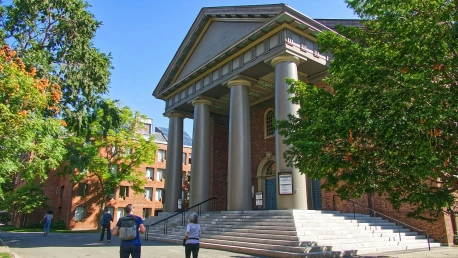Massachusetts Grants $10M to Boost Sustainable Manufacturing Innovations
Massachusetts continues to build on its reputation as a leader in innovation and sustainability. The Healey-Driscoll administration has announced the allocation of over $10 million in grants to support sustainable manufacturing alternatives through the Massachusetts Manufacturing Innovation Initiative (M2I2). Managed by the MassTech Collaborative’s Center for Advanced Manufacturing (CAM), this funding aims to bridge the gap between innovation and commercialization by providing capital grants and supporting advanced projects in emerging sectors such as climate tech, bioindustrial manufacturing, and recyclable materials. This substantial investment is not only intended to boost technological advancements but is also projected to create approximately 230 new jobs across the state, underlining the dual focus on sustainability and economic growth.The announcement of this funding initiative comes at a time when there is increasing recognition of the need for sustainable manufacturing practices. Traditional manufacturing methods often have significant environmental impacts, including high energy consumption and waste generation. By contrast, the projects funded through the M2I2 grants aim to develop and implement technologies that are more efficient and environmentally friendly. This is in line with Massachusetts’ broader goals of reducing its carbon footprint and promoting green technologies. The grants also highlight the state’s commitment to supporting innovation and ensuring that new technologies are not only developed but also brought to market, benefiting both the economy and the environment.
Commitment to an Innovation Economy
Massachusetts has long been a bastion for innovation, with its advanced manufacturing companies, renowned universities, and talented workforce. Governor Maura Healey’s statements reflect a renewed commitment to maintaining this status by investing in pioneering R&D and infrastructure. The M2I2 program epitomizes this dedication by ensuring that promising research translates into practical, commercially viable products. Governor Healey emphasizes that these investments are crucial for sustaining Massachusetts’ leadership in the global innovation economy. This has been a consistent theme in the state’s approach to economic development, leveraging its strengths in education, technology, and research to stay ahead in the competitive landscape.In tandem with this vision, the state is channeling resources towards creating an environment where innovation can thrive. By providing grants and fostering collaborations between private companies and academic institutions, the administration aims to nurture a robust ecosystem that supports advanced manufacturing. This strategic approach ensures that Massachusetts remains at the forefront of technological advancements and sustainable practices. The administration believes that by investing in these areas, they can drive long-term economic growth, create high-quality jobs, and position Massachusetts as a leader in addressing global challenges such as climate change and sustainability.
Job Creation and Economic Growth
Lieutenant Governor Kim Driscoll highlights that such investments are not just about technological advancement—they are also about fueling economic growth and job creation. The initiative is projected to create approximately 230 new jobs across the state, spanning various skill levels. These opportunities are particularly crucial as they ensure job stability and growth in emerging industries. The ripple effect of job creation is significant; it not only provides immediate employment opportunities but also stimulates the local economy through increased consumer spending and broader economic activity. This has a positive impact on various sectors, from retail to services, further reinforcing the economic benefits of the initiative.The creation of high-quality jobs is a primary objective of the M2I2 grants. Companies receiving these funds are able to expand their workforce, providing well-paying and stable employment opportunities. Such job growth has a ripple effect on the local economy, boosting consumer spending and stimulating further economic activity. Beyond the immediate economic benefits, these jobs also contribute to workforce development in advanced manufacturing, equipping workers with the skills needed for future growth. This aligns with the state’s broader strategy of building a resilient and future-ready workforce, capable of adapting to new technologies and industries.
Advancing Sustainable Manufacturing Practices
One of the most compelling aspects of the M2I2 initiative is its focus on sustainable alternatives to traditional manufacturing methods. The funded projects prioritize the development of novel, environmentally friendly technologies. For instance, Clean Crop Technologies is working on a method to remove contaminants from crops using a fraction of the energy consumed by traditional methods, reflecting a significant leap towards sustainability. These advancements are crucial as they address pressing environmental challenges while reinforcing Massachusetts’ leadership in sustainable manufacturing.This focus on sustainability is not only beneficial for the environment but also positions companies to meet increasing consumer demand for eco-friendly products. Additionally, the emphasis on sustainability is evident across various funded projects. Companies like CapyBara Energy and Multiscale Systems are innovating manufacturing materials and processes that are both efficient and environmentally friendly. These companies are developing new technologies that reduce waste, lower energy consumption, and improve overall efficiency. By supporting these projects, the M2I2 initiative is helping to drive the adoption of sustainable practices in the manufacturing sector. This is aligned with global trends towards more sustainable production methods and reflects a growing recognition of the need for industries to reduce their environmental impact.
Collaborations and Partnerships
A key component of the success of these grants is the collaborations between grant recipients and academic institutions. Partnerships with institutions like Worcester Polytechnic Institute, UMass Amherst, and Springfield Technical Community College are instrumental in facilitating knowledge-sharing and workforce development. These collaborations ensure that new technologies are supported by a skilled labor force, enabling smoother transitions from research to commercialization. The involvement of academic institutions is crucial as they provide the necessary expertise, research capabilities, and training programs to support these innovative projects. This collaborative approach ensures that the funded projects are well-supported and have the best chance of success.The integration of academic institutions in these projects provides a dual benefit: fostering innovation while developing a trained workforce. Students and researchers gain hands-on experience with cutting-edge technologies, preparing them for future roles in the industry. This approach not only supports the current needs of the manufacturing sector but also builds a pipeline for future innovation. By involving students and researchers in these projects, the M2I2 initiative is helping to create a future workforce that is skilled in advanced manufacturing technologies and ready to drive further innovation in the years to come.
Focus on Pilot Scale Production
Many of the grants are directed towards establishing pilot scale production lines. This strategy is a critical step in transitioning from innovation to commercialization. By enabling new technologies to be tested and validated on a smaller scale, companies can identify and address potential challenges before scaling up to full production. This approach mitigates the risks associated with bringing new technologies to market, ensuring that they are reliable and effective before being deployed on a larger scale. The focus on pilot scale production lines underscores the practical application of these grants, ensuring that innovations are not just theoretical but can be feasibly integrated into existing manufacturing processes.The focus on pilot scale production lines underscores the practical application of these grants. It ensures that innovations are not just theoretical but can be feasibly integrated into existing manufacturing processes. This approach mitigates risks and enhances the likelihood of successful commercialization, ultimately driving economic growth and sustainability. By supporting pilot scale production, the M2I2 initiative is helping companies to bridge the gap between research and market, facilitating the transition of innovative technologies from the lab to the production floor. This is a crucial step in ensuring that the funded projects have a real and lasting impact on the manufacturing sector.
Economic Viability and Industry Impact
Massachusetts is reinforcing its standing as a leader in innovation and sustainability with the announcement of over $10 million in grants by the Healey-Driscoll administration. These funds, part of the Massachusetts Manufacturing Innovation Initiative (M2I2) and managed by the MassTech Collaborative’s Center for Advanced Manufacturing (CAM), aim to support sustainable manufacturing. By bridging the gap between innovation and commercialization, the grants will provide capital for advanced projects in climate tech, bioindustrial manufacturing, and recyclable materials. This investment is not only set to drive technological progress but is also expected to create approximately 230 new jobs in the state, emphasizing a dual focus on sustainability and economic prosperity.This funding comes as awareness grows about the need for sustainable manufacturing. Traditional methods often result in significant environmental damage, including high energy use and waste. The M2I2-funded projects aim to develop technologies that are more efficient and eco-friendly, aligning with Massachusetts’ goals to reduce its carbon footprint and promote green tech. The initiative underscores the state’s commitment to fostering innovation and ensuring new technologies reach the market, benefiting both the economy and the environment.









